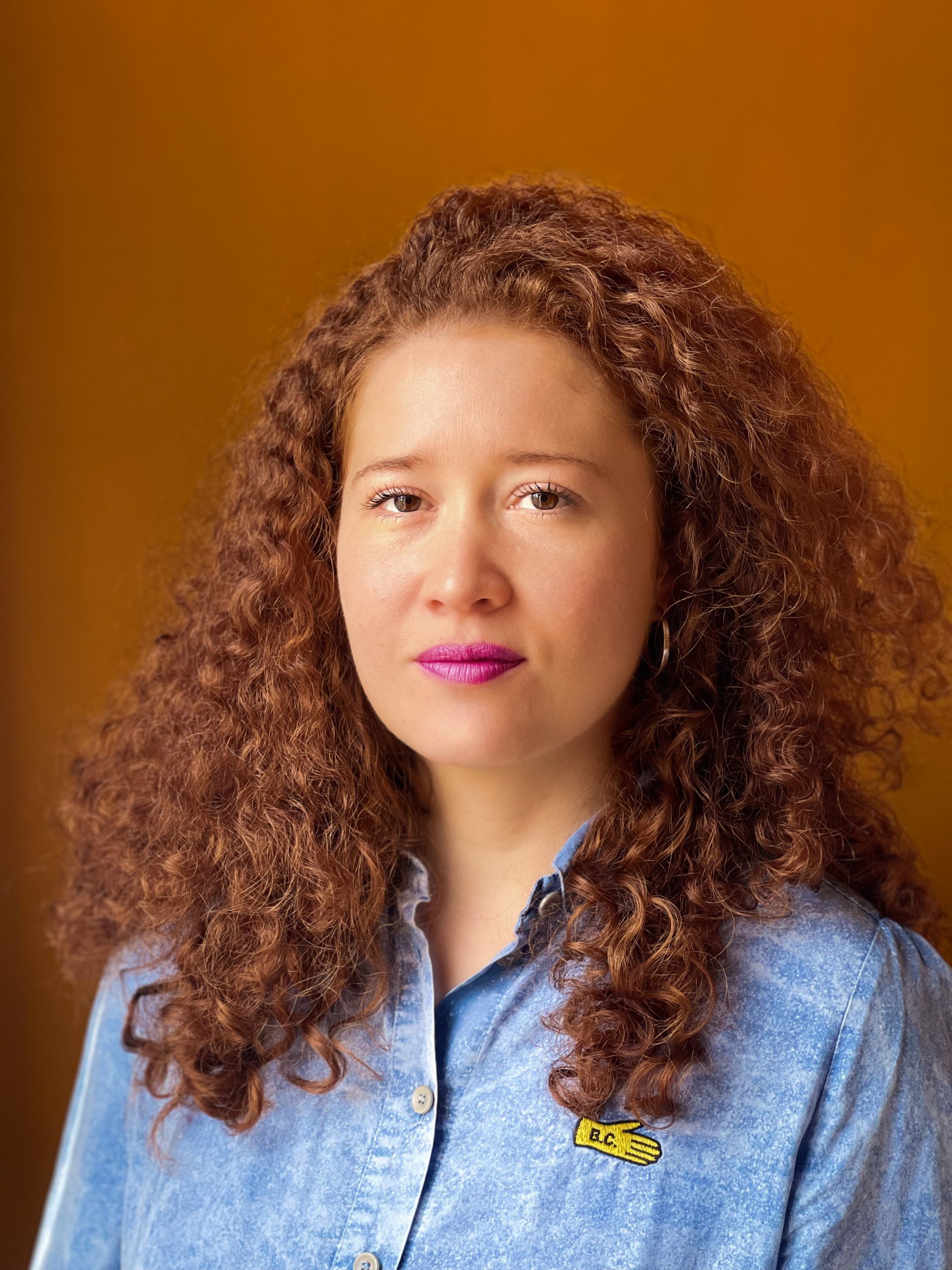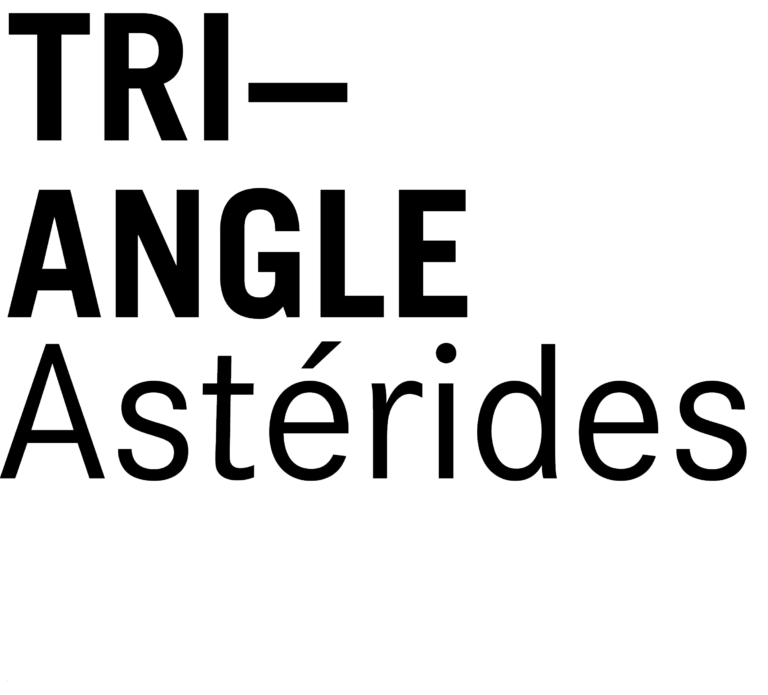Ana Mendoza Aldana
Curator, Art Ciritc and Poet
March-April 2026

- Literature
- New Orleans
“Through research in the Tennessee Williams archives in New Orleans, I am exploring how literary creation and artistic experience can serve as a means to counter feelings of alienation and melancholy.”
I was born in Guatemala City and have been living in Paris for over fifteen years. The tensions between uprooting and integration, between the desire for a sense of belonging and the refusal to yield to heteronormative injunctions, shape my perspective as a curator, art critic, and poet.
I organize visceral exhibitions grounded in in-depth, intuitive research. They weave narrative paths through the works of contemporary artists with whom I work closely, striving to convey their contextual and territorial specificities as well as their artistic reflections. I am particularly drawn to feminist and queer approaches, and to narratives that emerge from the margins.
Literature is often a starting point that allows me to open multiple doors to sensitive, situated, and intellectual aesthetic experiences.
Through writing and text, I seek to unfold emancipated associations of images, rhythms, and sounds, borrowing the free forms and typographic play of poetry. I develop a form of art criticism that offers open-ended readings of artistic practices, combining both reasoned and emotional approaches.
After studying History in Strasbourg and Art History at the Sorbonne in Paris, Ana Mendoza Aldana collaborated with galleries and art centers that have been instrumental in shaping the contemporary art scene in France and internationally.
She has presented or published her work in institutions such as the Kandinsky Library at the Centre Pompidou, the École des Beaux-Arts de Paris, the École du Louvre, Crédac in Ivry, M HKA in Antwerp, and more recently at Columbia University in Paris.
Through research in the archives and correspondence of Tennessee Williams in New Orleans, Tennessee’s Ghost is a project that explores how literary creation and artistic experience can serve as a means to confront feelings of alienation and melancholy.
Melancholy is the refusal to let go of what we do not always understand ourselves to have lost, what we repress, or what we lack. Melancholy preserves what no longer exists; it is a refuge. Voracious and cannibalistic, it both hinders and fuels creation. Melancholy is tied to histories of migration, to the loneliness of our urban environments where community bonds have frayed, to racial discrimination and class struggles, and to the experiences of sexual and gender minorities.
Melancholy settles like sediment at the bottom of ourselves, becoming the omnipresence of an absence that haunts us — a ghost. And then what? Either we learn to negotiate with this ghost, or we are forced to confront deep loneliness, depression, and potentially other emotional and psychic ruptures.
In 2025, I organized El fantasma de Tennessee at Galerie Marcelle Alix in Paris, an exhibition on melancholy based on three iconic plays by Tennessee Williams. The works of contemporary artists offered an initial artistic experience of this research, which I hope to enrich and deepen in New Orleans with the support of Villa Albertine by consulting the documents and correspondence of the American author preserved there. Writing workshops at 3bisf in Aix-en-Provence and at Triangle-Astérides in Marseille will allow me to share with audiences the restorative power of text and creation in addressing issues related to migration narratives and mental health.
New Orleans is unlike any other city in the United States, and no other city is as present in Tennessee Williams’s writings as New Orleans itself, whose history, architecture, and heat permeate his entire body of work, like a state of constant perspiration soaking through our clothes.
During my residency in New Orleans, I will delve into the archives of the American author, focusing in particular on his correspondence and notebooks.
This research stay will also coincide with the Tennessee Williams & New Orleans Literary Festival, held every March to celebrate the playwright. It will be an opportunity to meet the team of curators and historians from the Historic New Orleans Collection, which hosts the event, as well as other historians, writers, literature professors, and thinkers, along with actors and musicians who reflect and create from and around Tennessee Williams’s legacy across a variety of artistic fields and languages.
Finally, I hope to take advantage of this time in New Orleans to explore everything that makes the city unique: the legacy of successive French and Spanish colonizations; the history and trauma of slavery and exploitative economies; the Great Depression, which left an indelible mark on the city; jazz; Carnival; and the persistence of a free spirit that stands in stark contrast to the local puritanism which profoundly impacted the young Tennessee Williams upon his arrival.
In partnership with

3bisf

Triangle-Astérides
Triangle-Astérides is a center for contemporary art of national interest based in Marseilles at La Friche la Belle de Mai, a cultural cooperative located in a former tobacco factory, since 1994.
Triangle-Astérides articulates a rigorous program of exhibitions with research residencies for artists from international and French scenes outside Marseilles, Associate Artists from the local scene (complementarily with the Marseilles City Studios), to which are added events, editorial projects and a thorough outreach to all audiences.
Triangle-Astérides is part of international networks (notably the Triangle Network, which initiated the founding of Triangle-Astérides which remains a member while operating independently), as well as national and local networks (with the merger, in 2018, of Triangle France and Astérides). Connecting these different scales is at the heart of all its activities.
Mindful of each individual’s needs, Triangle-Astérides ensures, to the best of its ability, the accessibility of all its programs for the audience as well as for the invited artists (the building is accessible to persons with a disability; and upon request tours can be offered in French Sign Language and through audio description).
Triangle-Astérides’ communication elements are available in French and English (sometimes translated by professional translators, often translated into imperfect English by the team itself). Occasionally and upon request, our programs can also be translated into other languages.
Triangle-Astérides is a non-profit association supported by the Ministry of Culture – Drac Provence-Alpes-Côte-d’Azur, the City of Marseille, the South Region and the Bouches du Rhône Department. Its team is composed of four people; its board of five people including an artist.
